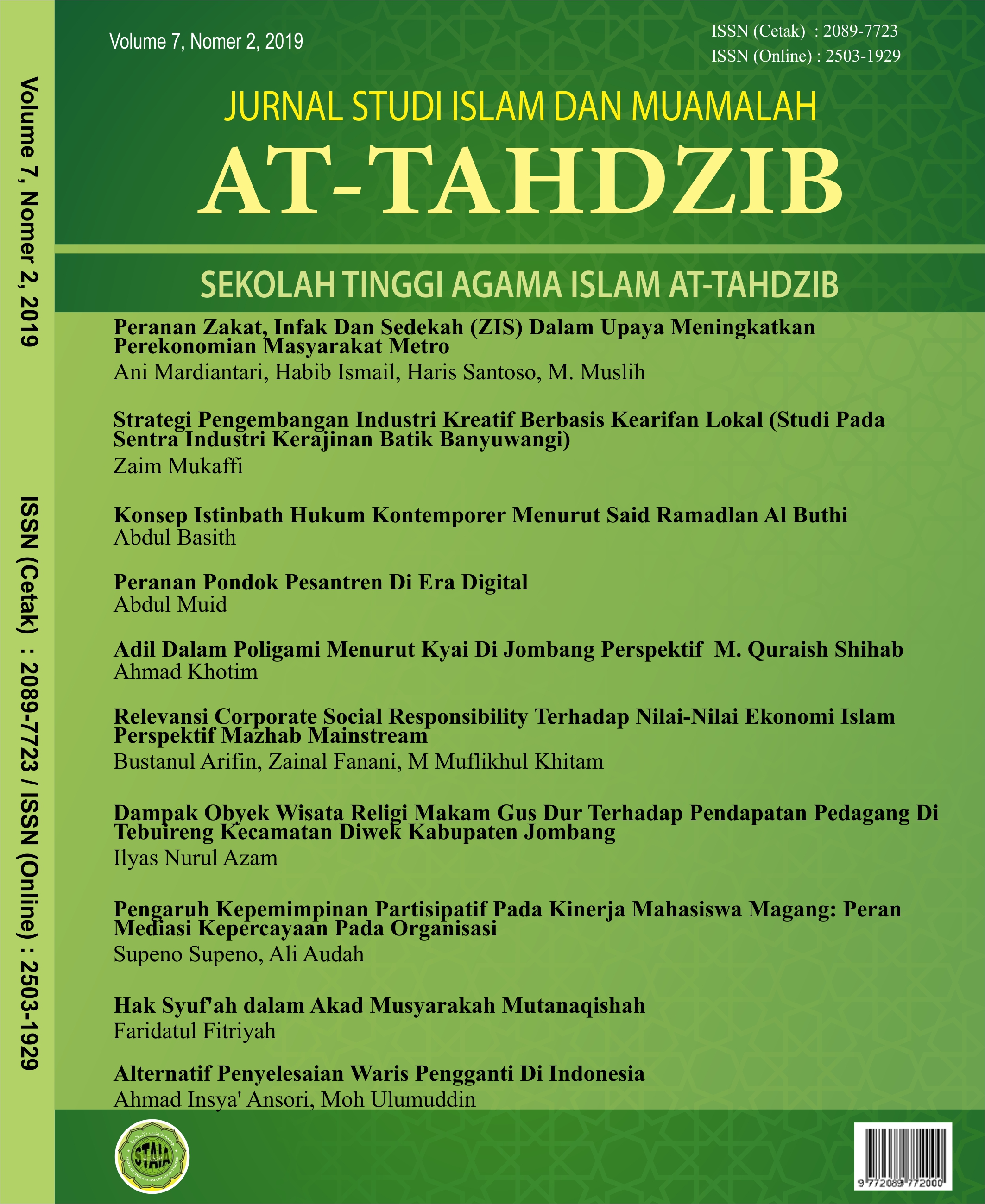Hak Syuf’ah dalam Akad Musyarakah Mutanaqishah
Abstract
Musyarakah Mutanaqishah is one of akad which has minor risk compared to the other akad that is commonly implemented by sharia banking. In Musyarakah Mutanaqisah contract of cooperation Musyarakah Mutanaqishah can be done in various commercial business activities, with the form of business that is shariah compliant, among others; the principle of buying and selling, and renting rent. The important point is to be aware of that Musyarakah Mutanaqisah creates ownership in the form of a stationary asset, the parties in the union are not allowed to sell the portion of the assets owned to the other party outside the union without permission from other members of the union. Because, when members of the union sell their portions to the outside of the Union, there is a right to the members of the long-standing member of the assets that have been purchased by new members of the union. When the rights of Syuf’ah are applied, there is a worry that the parties are harmed. Based on this background, the author examines the right of Syuf’ah in Musyarakah Mutanaqishah contract.
Based on the results of the study of the rules of agreement Musyarakah Mutanaqishah, based on theories and the rules of Dewan Syariah Nasional-Majelis Ulama Indonesia do not discuss the rules regarding the prohibition of parties in the union move or sell to other parties outside the union. But the implementation of this agreement on Sharia banking, the Otoritas Jasa Keuangan regulates the standard application of Musyarakah Mutanaqisah product. In the standard book the application of musyarakah Mutanaqishah products, arranged in relation to Negative Covenant clause. In drafting a financing agreement contract with the Musyarakah Mutanaqisah scheme, the bank should bind customer not to divert and surrender the portion of the customer's ownership to the other party, either in whole or in part. The author hopes the rule of application of this agreement is also noticed by other financial institutions, especially non-bank financial institutions in its transaction also implementing Musyarakah Mutanaqisah contract.
References
Al-Bukhari, Muhammad ibn Ismail ibn Ibrahim ibn al-Mughirah, Shahih al-Bukhari, Beirut: Dar al-Fikri, 1981, hadits ke-2257, Juz 8.
Antonio, Muhammad SyafiÃ, Bank Syariah dari Teori ke Praktik, Jakarta:Gema Insani, 2001.
Tim Laskar Pelangi, Metodologi Fiqh Muamalah: Diskursus Metodologi Konsep Interaksi Sosial-Ekonomi,Kediri: Lirboyo Press,2013.
Muslich, Ahmad Wardi, Fiqh Muamalat, Jakarta:Amzah, 2013, cet II.
Zuhaili, Wahbah, al-Muamalah Al-Maliyah Al-Muasirah,Libanon:Dar alfikr,t.t.t.
Devisi Pengembangan Produk dan Edukasi Departemen Perbankan Syariah Otoritas Jasa Keuangan, Standar Produk Musyarakah dan Musyarakah Mutanaqishah, Jakarta: Otoritas Jasa Keuangan, 2016.
Fatwa DSN-MUI Nomor 73/DSN-MUI/XI/2008 tentang Musyarakah Mutanaqishah.
Keputusan DSN-MUI No. 01/DSN-MUI/IX/2013 Tentang Pedoman Implementasi Musyarakah Mutanaqishah dalam Produk Pembiayaan.
Al-Qur’an Indonesia. Terjemah Al-Quran Al-Karim. Bandung: Al-Ma’arif, 1993.
Copyright (c) 2019 At-Tahdzib: Jurnal Studi Islam dan Muamalah

This work is licensed under a Creative Commons Attribution 4.0 International License.

Jurnal Studi Islam by At-Tahdzib is licensed under a Creative Commons Attribution 4.0 International License.
Based on a work at http://ejournal.kopertais4.or.id/mataraman/index.php/tahdzib








